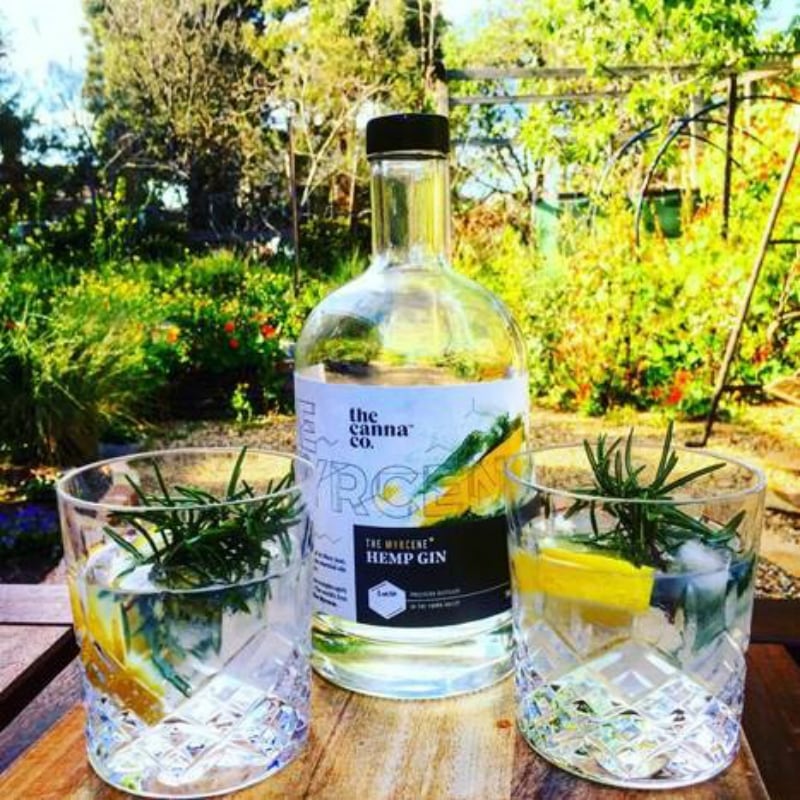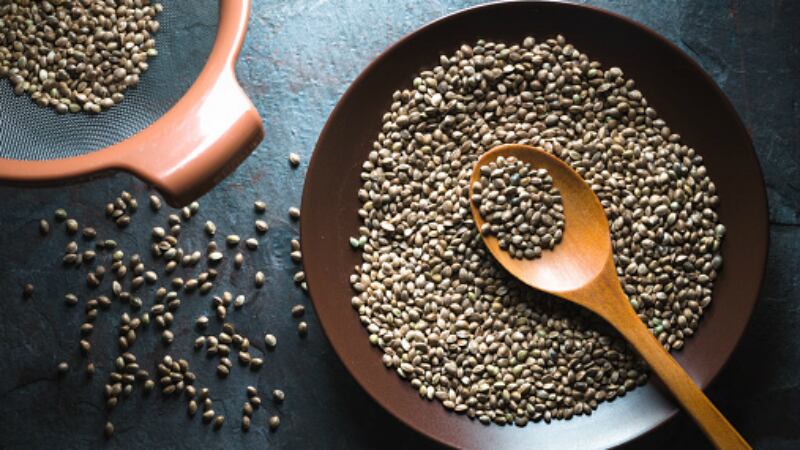The gin is named ‘The Myrcene Hemp Gin’ and is made out of cannabis terpenes-containing hemp, after the most abundant terpene found in its midst.
“Without giving away our secret recipe, I can confirm that the raw hemp material we use in production does indeed contain cannabis terpenes, in addition to a unique proprietary blend of specially selected cannabis terpenes added throughout the distillation process,” said The Cannabis Company co-owner and Chief Marketing Officer Cormac Sheehan to FoodNavigator-Asia.
He explained that terpenes are scented molecules that affect how one feels when applied to the skin, inhaled or consumed. These are typically very concentrated, so only a few drops are required.
“Terpenes have been proven to have diverse positive effects on our body and can increase the therapeutic properties of cannabis. This is known as the ‘Entourage Effect’.
“We start with a base layer of hemp and then build our terpene profiles around this. We also employ other botanicals such as Juniper and Coriander, which is what gives it such a classic “ginny” profile,” he added.
Myrcene is the most common terpene found in cannabis, and is also present in tropical fruits such as mango, citrus, parsley, basil and thyme. It is also found in over 50% of all cannabis strains.
“It has a fruity, woody, citrusy scent which is extremely complex, and (in our opinion, and after extensive R&D) is the closest possible flavour profile to cannabis,” he said.
The gin has seen encouraging success so far, such that The Cannabis Company is now looking to move beyond Australia with this product.
“[We] sold out of our initial [batch of] 300 bottles in 3 days. We’re about to close pre-sales on the 2nd batch, with an additional 1000 bottles sold in just over a week,” added Sheehan.
“At the time of writing, we are distributing this product in Australia only. The Myrcene is only available on our website currently, but we have already secured partnerships with some big-box retailers.
“[Following] on from [consumer-facing international orders at the end of 2018], the global retail rollout will occur in New Zealand first with expansion into the U.K market and possibly Singapore after.
“There is very limited stock available while we work through the upscaling process, as creating this gin is more complex than regular gins. By current projections, we believe that from January stock will be readily available on a consistent basis.”
The ‘demonisation’ of hemp
According to Sheehan, hemp and cannabis were only recently (circa 100 years ago) banned in almost all countries due to ‘various companies’ commercial interests around nylon’.
“Nylon was the competitor of hemp fibre, and these companies sought to have this deemed illegal. Cotton and paper companies jumped on the bandwagon too, seeking to demonise hemp as they realised it was a superior material,” he added.
“Following on from this, America and other western countries embarked on a severe and sometimes racist campaign to ban any form of cannabis use either recreationally or commercially.”
He added that the ‘hippies’ image associated with hemp is part of the stigma associated with the word ‘cannabis’.
“[We] believe that not only hippies, but also hip-hop has played a large part in the mindset that cannabis is a drug and you will not function as a normal human if you utilise it.
“However, when you look at the scientific evidence we see the exact opposite: people are being cured, lives are being changed, and families are being restored to health and happiness.”
Awareness does appears to be spreading, and things are looking up for hemp - Australia lifted the ban on hemp and hemp food products in November 2017, which is when The Cannabis Company launched its food brand into the Australian market.
“Overseas many countries now support the legalisation of hemp and are looking to expand the hemp industry in many areas including food, building materials, biofuels and plastics,” he added.
“Hemp has literally thousands of uses and, remarkably, can [even] be used as a replacement for petroleum.”
Regulatory concerns surrounding hemp
Sheehan also told us that even though the company has a legal team expert at dealing with the related issues, ‘extreme caution’ is still required when it comes to growing hemp and producing the related products as there are many regulatory hurdles involved.
“Being on top of the regulatory framework is critical as parts of this environment can change overnight,” he said.
“I can share one example: earlier this year we finalised the packaging for our Raw Hemp Protein and printed over 10,000 units. Overnight, the labelling regulations were changed…which meant we needed to reprint all 10,000 labels!
“This is a new market, meaning that things can change overnight. You need to stay on your toes to keep ahead of the game.”
Earlier this year, New Zealand announced the legalisation of hemp seeds as a food, which can explain why the company is planning to expand its reach there next.
“There will always be regulatory hurdles in any market, and each country is different,” stated Sheehan.
“Having great partners in each country and working together on a shared vision is the most important part of overcoming these challenges. Anything is possible – it just requires the right people, the right vision and a lot of elbow grease!”



